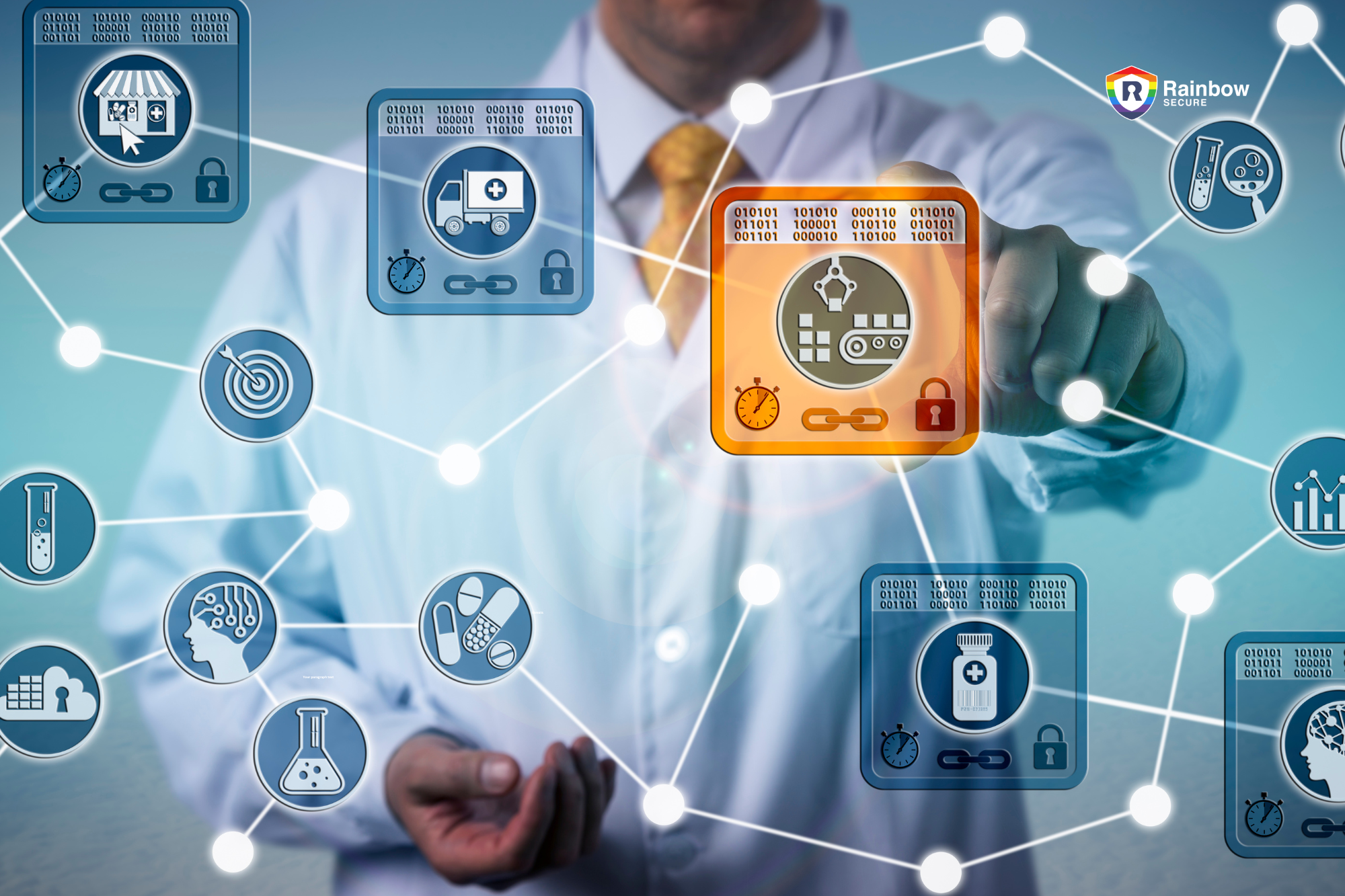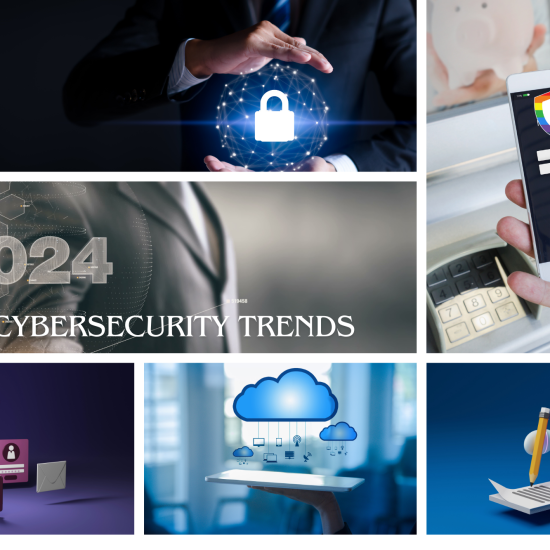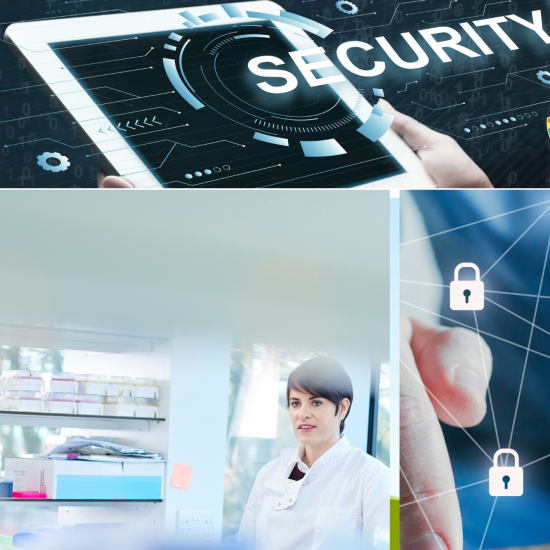Cybersecurity risks and solutions for pharmaceutical industry
The pharmaceutical industry’s growing digitization has made it a prime target for cyber-attacks, with research indicating that it is one of the most frequently attacked sectors. Cyber criminals are attracted to the industry’s substantial investment in research and development, vast intellectual property, and sensitive patient information. Therefore, it is critical that the pharmaceutical industry reinforces its cybersecurity defenses to protect against these threats.
Pharmaceutical organizations must adhere to strict privacy regulations when it comes to handling critical data, such as pharmaceutical research, technologies, drugs, and confidential patient information. Any data breach could have severe consequences for the business and its patients, resulting in financial implications, damage to the company’s reputation, operational disturbance, and potential regulatory fines. Therefore, it is essential to implement a comprehensive cybersecurity strategy to protect against these threats.
By prioritizing cybersecurity, the pharmaceutical industry can better protect its valuable data and continue to innovate and serve patients with confidence. Failure to do so can have severe consequences, such as stolen intellectual property, lost revenue, litigation, damage to brand image, and a loss of patient or stakeholder trust. Although the industry has not been at the forefront of cybersecurity practices, recent high-profile cyber- attacks have acted as a wake-up call, and its now time for the industry to take proactive measures to safeguard its valuable data.
In this article, you will read about
The Reasons Why Cybercriminals Target Pharmaceutical Companies
What the Industry Has Learned from Past Incidents
Regulatory Frameworks
A comprehensive proactive cybersecurity approach
How Rainbow Secure can help?
The Reasons Why Cybercriminals Target Pharmaceutical Companies
Pharmaceutical and biotechnology firms have been subject to an increasing number of cyberattacks in recent years, particularly with regards to intellectual property theft. As these companies continue to digitize and store more valuable data online, they become more attractive targets for cybercriminals. This stolen data can either be sold on the dark web or held for ransom, forcing companies to pay up to regain access to their own critical documents, such as trial results and patient information.
Unfortunately, cybersecurity incidents such as hacks and breaches are not uncommon in the pharmaceutical industry. However, these incidents can serve as educational tools to better inform current cybersecurity policies for companies.
What the Industry Has Learned from Past Incidents?
In March 2023, Drugmaker Sun Pharmaceutical Industries said its business operations have been impacted following the incident and efforts to contain and redress the situation. It also said that revenues would be reduced in some businesses as a result. A ransomware group has claimed responsibility for the incident, Sun Pharma disclosed to the stock exchanges, without divulging the name of the group or outlining the quantum of impact. This is the third high-profile cyber-security linked incident on a large Indian drugmaker in about three years. In late 2020, Dr. Reddy’s Laboratories and Lupin reported cyber-security breaches.
In 2018, drug manufacturer Bayer discovered that its computer networks had been infected with malicious software. While there was no evidence of data theft or personal data compromise, the incident is still concerning. Bayer was able to determine that the hackers were using malware called WINNTI, which allowed unauthorized users to access private systems remotely and look for internal vulnerabilities that could be potentially exploited. The company and their security experts believe the Wicked Panda group, based in China, initiated the attack.
One of the most significant cyberattacks on a pharmaceutical company occurred in 2017 when Merck & Co. was hit by a massive ransomware attack. This resulted in worldwide operational disruptions, forced the company to halt production of new drugs, and significantly impacted the company’s revenue for the year. Similarly, the WannaCry ransomware attack affected healthcare networks worldwide, locking healthcare professionals out of patient health records and causing billions of dollars of damage.
Some of the reasons for these cyber-attacks are:
- Third-party Vendors: Pharma organizations depend heavily on third-party vendors for daily activities like research and development. This reliance can put companies at risk if a vendor experiences a breach, which can result in lost data. Healthcare cybersecurity requires strict processes and practices to ensure regulatory compliance.
- Ransomware: Hackers use ransomware to disrupt business operations and hold organizations to ransom. When malicious attachments are downloaded, files and computers are encrypted, and the attacker demands a ransom fee in exchange for restoring access to data and devices.
- IoT: The pharmaceutical industry relies on IoT to simplify access to important documents and patient data, but this also increases the risk of cyberattacks. IoT presents additional vulnerabilities, and the industrial IoT requires significant cybersecurity processes to prevent data compromise.
- Phishing Attacks: Phishing attacks use malicious links to compromise email accounts, steal data and money, or download malware onto devices.
- Employee Error or Negligence: Human error and negligence remain a major driver of data breaches and cyberattacks across all industries.
- Mergers and Acquisitions: Mergers and acquisitions pose a significant risk to confidential data if not managed effectively. Companies should take care to protect their data during these processes.
- New Technology and Governance: New technology carries inherent security risks, so pharma organizations must ensure that all new technologies are properly secured and do not present vulnerabilities to hackers. Robust cybersecurity practices and protocols are essential to protect intellectual property and monitor threats.
Regulatory Frameworks:
The pharmaceutical industry is widely recognized as a highly regulated field. While the Health Insurance Portability and Accountability Act (HIPAA) is the most recognizable example, a recent Health Care Information and Management Systems Society study found that cybersecurity experts often lack training in HIPAA compliance, which can lead to security risks.
Furthermore, new FDA guidelines have been implemented to ensure the cybersecurity of medical devices. In addition, manufacturing processes for drugs and devices must adhere to good manufacturing practices, while supply chain operations must follow good distribution practices. Since biomanufacturing falls under the pharmaceutical umbrella, companies must also comply with the National Defense Authorization Act.
Due to the fact that many pharmaceutical companies have multiple facilities and offices across the world, they are responsible for complying with all local regulations and ordinances. The EU General Data Protection Regulation (GDPR) has resulted in fines for pharmacies that fail to comply with cybersecurity standards.
21 CFR Part 11, titled “Electronic Records; Electronic Signatures,” outlines the criteria for the use of electronic records and electronic signatures in place of traditional paper records and handwritten signatures in FDA-regulated industries. The main goal of Part 11 is to ensure the reliability, integrity, and authenticity of electronic records and signatures, which are critical for the safety and efficacy of pharmaceuticals and medical devices.
Key points of 21 CFR Part 11 include requirements for:
- System validation: Electronic systems used for FDA-regulated activities must be validated to ensure they perform accurately and reliably.
- Electronic signatures: Part 11 outlines requirements for electronic signatures, such as unique user IDs and password protection.
- Audit trails: Systems should have secure audit trails that capture and store any changes to electronic records.
- Data integrity: Electronic records must remain intact and legible throughout their retention period.
- Access controls: Only authorized personnel should have access to electronic records.
- Record retention: The regulation specifies the retention period for electronic records.
- Compliance with 21 CFR Part 11 is essential for companies involved in the development, manufacturing, and distribution of pharmaceuticals and medical devices to ensure the quality and safety of their products. Violations of Part 11 can result in regulatory actions by the FDA.
A Comprehensive, Proactive Cybersecurity Approach
To ensure cybersecurity, it’s important to adopt a proactive, top-down approach that goes beyond the basics of updating antivirus software and downloading security patches. This approach involves identifying potential vulnerabilities before they are exploited, staying informed on the latest cybersecurity threats, and regularly reviewing cybersecurity protocols to ensure they are effective.
Cybersecurity is the responsibility of every employee, from the CEO to the mailroom intern. While the C suite can work with cybersecurity experts to implement best practices, employees at all levels must understand how to protect digital assets, avoid falling for scams, and report potential incidents. Training tools like tabletop scenarios and pen tests can help hone cybersecurity protocols and safeguard assets.
Tabletop scenarios, like fire drills, let employees practice responding to simulated cybersecurity incidents. Afterwards, teams can review their response, identify areas for improvement, and formulate strategies to address shortcomings. Penetration testing involves hiring ethical hackers to stress test your cybersecurity protocols by attempting to break into your system and access digital assets. The resulting report can be used to strengthen protocols and address vulnerabilities.
To mitigate the risks of cyber- attacks, here are some key steps the pharmaceutical industry can take:
- Conduct regular cybersecurity assessments and audits to identify vulnerabilities and address them promptly.
- Implement a comprehensive cybersecurity plan that includes measures like multi-factor authentication, encryption, and regular data backups.
- Provide regular cybersecurity training to all employees, including how to identify and report potential threats.
- Establish incident response and business continuity plans to ensure that the business can respond quickly and effectively in the event of a cyber- attack.
For many, creating, implementing, and monitoring comprehensive cybersecurity solutions may seem daunting. That’s where Rainbow Secure comes in. We are a team of trained cybersecurity experts who can create a custom solution to meet your needs, monitor your network for suspicious activity, offer employee training, and help mitigate or avoid damage in the event of a cybersecurity incident. We can also help review incidents and learn from them to avoid similar breaches in the future. Rainbow Secure can also help in he following ways.
How can Rainbow Secure help?
Right amount of data and system access to right person or role at right time is the key to organizations being able to use digital tools and platforms to serve the customer base and stay compliant.
Next Generation Rainbow Secure platform is a modern identity authentication (MFA) and single sign- on (SSO) solution for your business across on-premises and cloud environments. It’s backed by an experienced team of cloud and security experts, years of innovation, and partnerships with leading cloud platforms. Rainbow Secure is a Leader in Smart and Secure Digital Solutions that work for you.
Insider Threats: Rainbow Secure assists in mitigating insider threats by implementing access controls, user monitoring, and privilege management solutions. Also, if the user leaves behind unlocked devices, saved passwords in the password manager or browser can be misused by malicious insiders. Interactive login security from Rainbow Secure helps prevents unauthorized access and protects against data theft or misuse by privileged users.
ChatGPT Security for business: Secure your ChatGPT login and Data with Rainbow Secure MFA Plugin.
Secure AI Integration: Consult Rainbow Secure Team to integrate AI in your business workflows powered by Azure and Rainbow Secure API.
Secure Workforce & Customer login: Use Authentication Plug-in by Rainbow Secure to secure workforce and customer logins. In this plug-in, you get a multi-dimensional password, passwordless login solutions with AI monitoring, Risk Analytics, and location fencing.
IoT Friendly Security: IoT platform developers can secure their cloud endpoints, and user logins (both admin and customer) against unauthorized access and scripted malware attacks using easy to adapt and support multi-layer interactive rainbow secure authentication solutions and services that includes but not limited to security assessment, API Security, secure user onboarding, and risk analytics.
Secure Data and its Backups We provide Cloud based data vault and data archive solutions backed by Microsoft Azure and secured by our authentication plugin and industry best practices to give you ransomware protection, help with data governance and disaster mitigation.
Database Security We provide technical consulting services to Secure Databases in cloud and on premise. You get best protection for your data in databases using native and third-party security tools.
Meet Compliance Requirements: Use Authentication Plug-in by Rainbow Secure with your business application and in SSO (Single Sign-on) and meet industry standards and compliance regulations such as NIST, ISO, FTC, SOX, SOC2, CMMC, CMMI, HIPAA, PCI, and others.
Securely communicate and Collaborate: Use Secure Business Email by Rainbow Secure and get protection against account takeover, phishing, ransomware, and automated login cyber frauds. In this email, you get options to send encrypted emails, single sign-on with Office 365, and Google, and 1 TB one drive storage.
Connect Business applications: Get one unified login using Rainbow Secure Single Sign-On
Manage User Onboarding / Offboarding using Rainbow Secure IAM
Verify User using Smart Multi-factor MFA. Smart Multi-Factor Authentication from Rainbow Secure which adjusts to your use case, reduces the cyber liabilities of a business from stolen credentials and improves productivity, and enhances user experience.
Do you have more questions about how Rainbow Secure innovative solutions help you enhance your Pharmaceutical Industry’s security posture and safeguard your business? Contact us today. Email us at Hello@rainbowsecure.com







